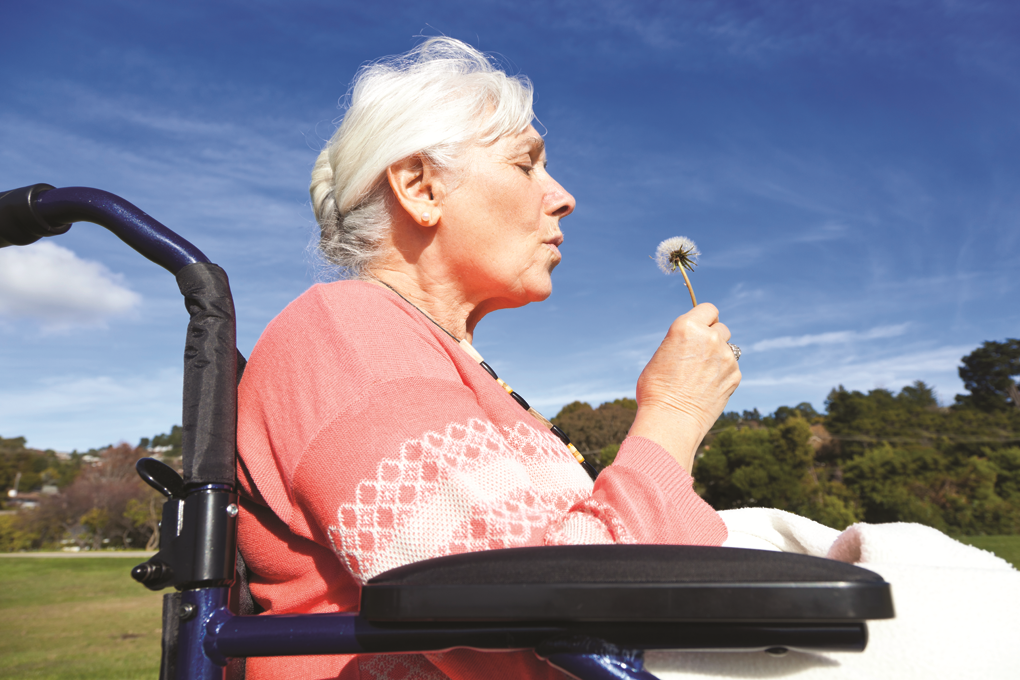
As summer rapidly approaches, the Sunshine State already lives up to its name. Temperatures rose from 82 to 93 degrees in the beginning of May with no indication of dipping below 90 through the rest of the month. Everyone should be wary of the sun, according to Debbie Stilphen, Florida Department of Health Public Information Officer. She said anyone spending lots of time outside needs to remember to stay hydrated and wear sunscreen. However, some members of the population are at more risk to the sun than others, namely children and the elderly.
Stilphen said, “Sweat cools the body but also can lead to dehydration. It’s important to drink. I can’t stress that enough. It’s what we would tell anyone, particularly the elderly.” She also wants people to be cognizant of what they drink, avoiding alcohol and sugary drinks. She added, “Don’t wait until you’re thirsty.”
However, Stilphen said, “A lot of times with the elderly, you have to remind them to drink. They may not feel thirsty and don’t drink as much as they should. Remind them to drink and make sure they have a place to sit in the shade if they’re outside for any length of time. Check on them frequently that they’re drinking and not getting overheated.”
While it’s common knowledge tragedy happens every year with leaving children and pets in hot cars, Stilphen said cracking the windows isn’t enough. “You don’t want to leave pets, children, or the elderly in a car even with the windows down because heat can build up…Cracked windows are not enough to ventilate a car.”
Finally, even in cool temperatures, sunlight causes various health problems. Overexposure to the sun, Stilphen said, is the cause of skin cancer. “Even in wintertime, people can get sunburned,” Stilphen said. “It’s probably a good idea for people to wear some kind of sunscreen any time they go outside.” She reminds those using sunscreen to reapply as packaging indicates.
Children, she said, have sensitive of skin and the elderly are more prone to cuts and tears due to their more fragile skin. “You need to be cognizant of that.”
For those who can’t escape indoors because their own home’s air conditioning doesn’t work, there is help. According to Natalie Smith, Gulf Power Public Information Officer, customers have two options.
“Through our CheckMe Plus program,” Smith said, “a trained contractor will conduct a comprehensive system assessment to give you a detailed evaluation and recommendations, along with complete requirements to qualify for potential Gulf Power HVAC-related rebates. For more information on this program, go to gulfpower.com or call 1-877-655-4001.”
The second program, she said, is flat bill or budget billing. “These programs help balance out monthly bills for customers so that don¹t have large fluctuations in their bills during the peak summer and winter months.” For more information on this one, call 1-800-225-5797.
Finally, even for people outside of Gulf Power, The Salvation Army has help. Jeff Rogers, also with Gulf Power, described Project SHARE, a program for “emergency assistance to our neighbors who need help with energy bills, repairs to heating and air-conditioning equipment, and other energy-related needs. The program assists the elderly, the disabled, the sick and others who are experiencing financial hardship.”
Rogers said The Salvation Army administers the program and electric utility customers fund it by donating through their electric bills. “All contributions are forwarded to The Salvation Army. Project SHARE is literally neighbors helping neighbors,” he said.
Clients in need can apply for assistance at The Salvation Army with eligibility requirements set by the same organization. Rogers said Gulf Power customers can help by pledging to contribute $1, $2, $5, $10 or any other whole-dollar amount each month. Gulf Power then automatically adds this amount to the customer’s monthly utility bill.
Note these additional heat related safety tips specifically for individuals over 65 years of age. These come from the Centers for Disease Control (CDC):
· Stay in air-conditioned buildings as much as possible. Contact your local health department or locate an air-conditioned shelter in your area.
· Do not rely on a fan as your primary cooling device during an extreme heat event.
· Drink more water than usual and don’t wait until you’re thirsty to drink.
· Check on a friend or neighbor and have someone do the same for you.
· Don’t use the stove or oven to cook—it will make you and your house hotter.
· Wear loose, lightweight, light-colored clothing.
· Take cool showers or baths to cool down.
· Check the local news for health and safety updates.
· Seek medical care immediately if you have, or someone you know has, symptoms of heat-related illness like muscle cramps, headaches, nausea or vomiting.
This article originally appeared on Santa Rosa Press Gazette: Summertime heat poses risk to elderly
